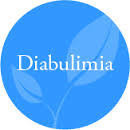Managing Type 1 Diabetes is Complex!
People who have type 1 diabetes spend significant energy and time considering food, eating and energy expenditure (note: type 1 is totally different than type 2 diabetes). Paying close attention to carbohydrate intake helps more effectively determine how much insulin to take.
In addition, people with insulin-dependent diabetes check blood sugar levels regularly (between 4 and 8 times per day minimum = 1400 to 1600 X per year), and account for many other variables in order to accurately calculate the amount of insulin to be injected.
Insulin works to pick up glucose (sugar) from the blood and carry this throughout the body, providing energy to the cells. Higher blood sugar levels can lead to urinating frequently, flushing important nutrients, contributing to weight loss. This means a person with Type 1, who does not get enough insulin will drop weight, be able to eat extra food without gaining weight or a combination of the two; eat more and even lose weight.
Diabulimia – a rare eating disorder
The term refers to people with type 1 diabetes managing weight and body image issues through missed or reduced dosing of insulin. Research indicates prevalence rates close to 30% of people with type 1 diabetes. This disorder impacts both genders and all ages, however, there are increased prevalence rates among adolescents and females as is true with most eating disorders.
Informally named diabulimia, this disordered eating behaviour (DEB) can be quite harmful and disruptive to the daily functioning for people managing type 1 diabetes. While this behaviour may involve intentional insulin omission, this may not always be the case. Science has more recently helped us think of the stomach is like a second brain. We also know the body and mind can develop habits that are not necessarily driven by conscious thought.
Given this knowledge, it is very important to refrain from blame in efforts to help those with this highly addictive behavioural pattern. Imagine if you could eat all kinds of food, much more than your friends, and through missing insulin not gain any weight? No purging, excessive exercise, laxative use or other behaviours required.
It is very important to watch for the following symptoms of diabulimia
- Frequent urination
- Excessive thirst
- Increased appetite, even binging behaviours
- High blood glucose levels (HBA1c often higher than 10)
- Lower energy levels
- Lower sodium levels
- Headaches
- Difficulty concentrating (increased work or school challenges)
- Severely imbalanced ketones
- Increased mood swings (agitation, grumpy)
-
 If these sound familiar for you, or someone you know, it is important to seek professional help from specialized, multi-disciplinary diabetes teams which include, nurses, dietitians, doctors, social workers and others. A team approach works best for any eating disordered recovery.
If these sound familiar for you, or someone you know, it is important to seek professional help from specialized, multi-disciplinary diabetes teams which include, nurses, dietitians, doctors, social workers and others. A team approach works best for any eating disordered recovery.
Working together, the person with type 1 diabetes can develop healthier management techniques, eating patterns and mental health strategies to improve health. Including other family members can also increase the healthcare team and speed up recovery from this difficult and rare disordered eating behaviour.
For more information contact us today !

Recent Comments